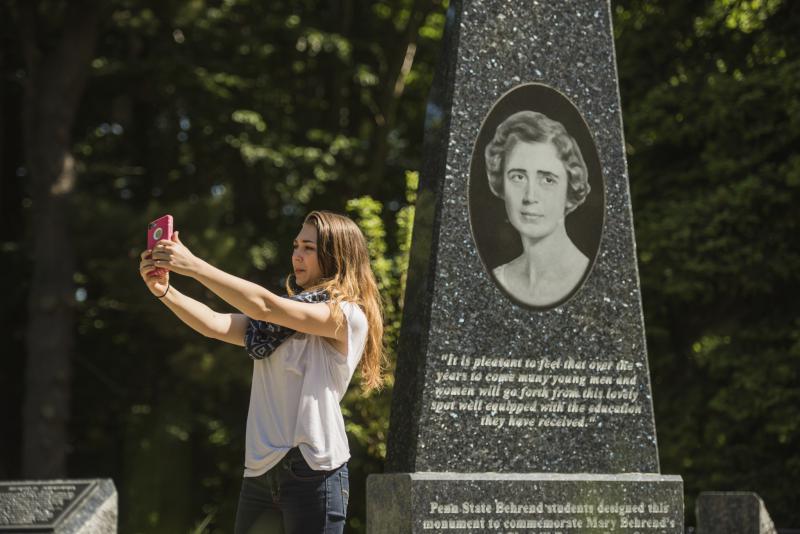 The Student Facility Fee has been the source of funding for many projects at Penn State Behrend since its inception in 2008.
The Student Facility Fee has been the source of funding for many projects at Penn State Behrend since its inception in 2008.
Behrend students establish the priorities for the use of the funds through surveys, focus groups, and open forums, together with input from campus administration and partners, including Housing and Food Services.
Over time, the funds have been used to expand and improve non-academic, recreational and multi-use space, with additions and amenities that enhance campus life for students at the college. The Galley convenience store, a state-of-the-art theater, a comprehensive information hub, and an updated student lounge area in the Reed Union Building are just a few of the projects completed thus far.
In the fall of 2015, disc golf arrived on campus with a nine-hole course winding around the perimeter of the college.
In 2016, a student-driven initiative to create a monument to Mary Behrend, in recognition of her gift of the Glenhill Farm to establish Penn State Behrend, was completed.
Guidelines for how SFF funds are used were developed by members of the SFF Committee here on campus. The committee then asked for student suggestions—a wish list, of sorts—through a campus-wide survey in 2009.
Since then, committee members have continued to seek student input for future SFF initiatives through focus groups and campus organizations. You can have your say on future projects, too.
Questions? Comments?
Contact Kelly Shrout, director, Student Affairs.
Learn More
What's been completed to date?
- The Galley convenience store and Ben Lane Plaza
- Renovation of 117 Reed Auditorium and Student Lounge
- New and improved RUB Desk, an information hub in Reed Union Building, for students and student organizations
- Mary Behrend Monument
- Disc Golf Course
- Updated Kochel Center lounge furniture and workstations
- Soccer Field Lights
- Hydration Stations all around campus
- Erie Hall
- Glenhill Gardens
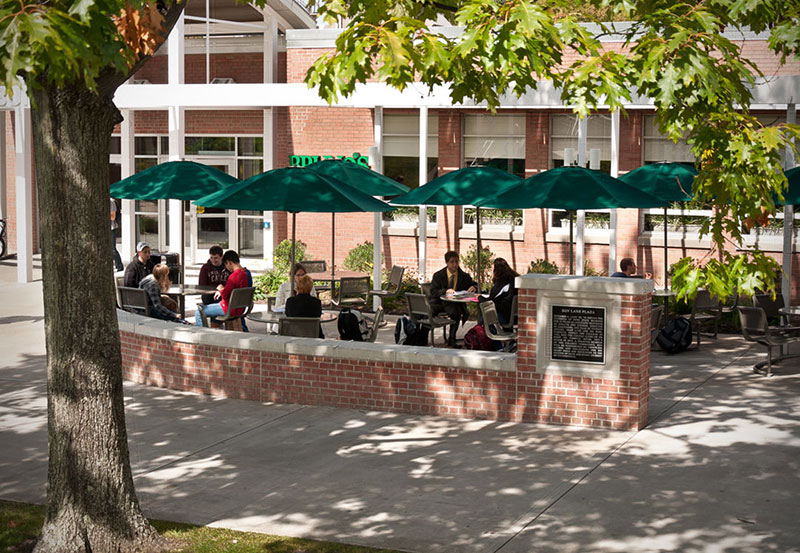
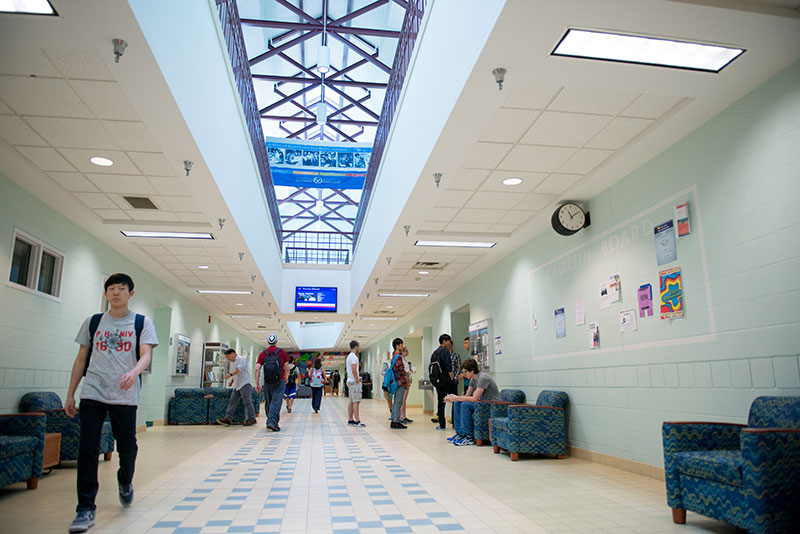
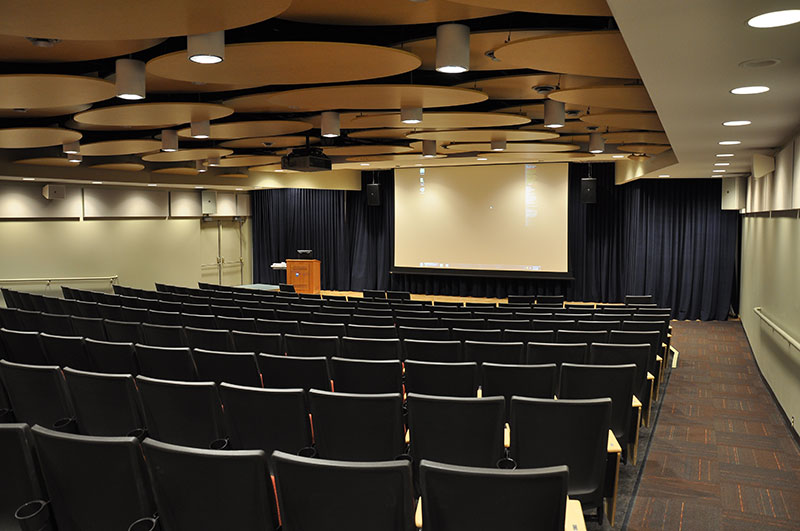

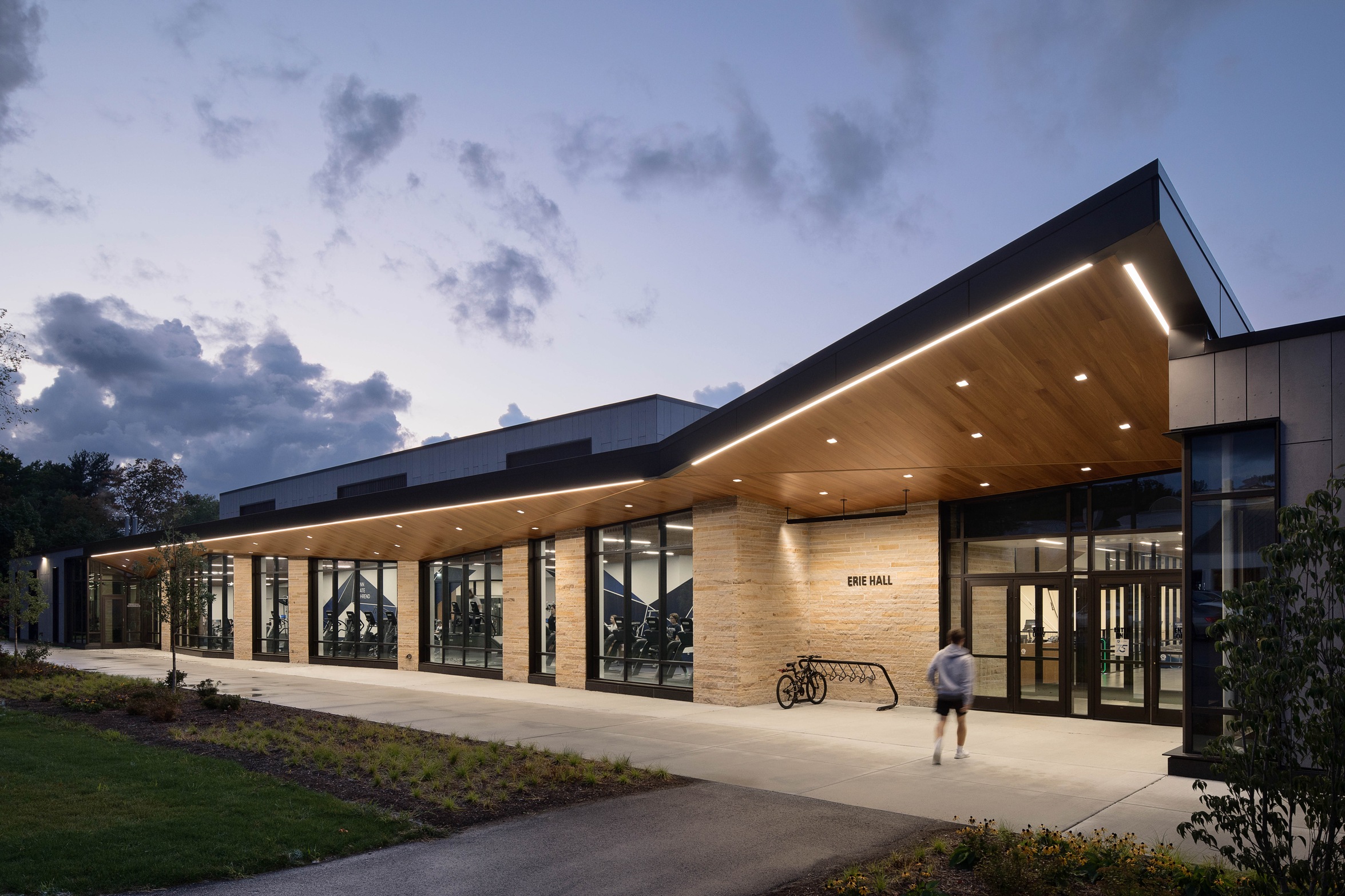
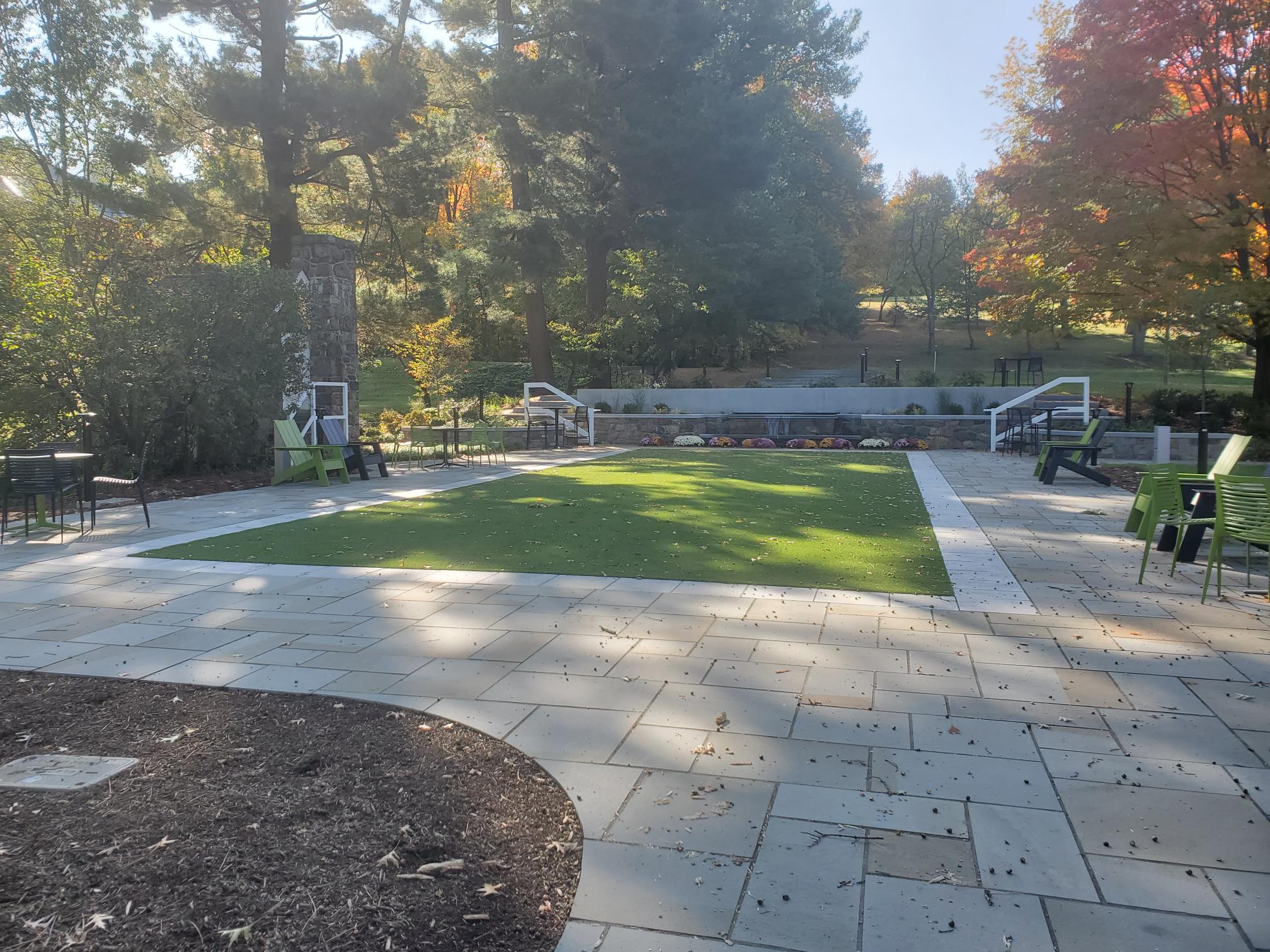
Where do the funds come from?
Each student pays $142 per semester toward the fund with part-time students paying a pro-rated amount based on the number of credits scheduled. Increases to the fee are determined by the Board of Trustees.
How do projects get funded?
The Student Facility Fee Committee recommends a project to the Chancellor. The Chancellor accepts the recommendation, and the Vice President of Student Affairs and the Vice President for Finance and Business approve.
Guidelines
Student Facility Fee funds collected at Penn State Behrend stay here. Funding of projects is on a cash-only basis; in other words, there is no borrowing against future years (without permission). SFF funds cannot be used to pay for rental agreements (such as for a building or memberships). SFF funds not used in a particular year will be carried over from year to year and earn interest. New facilities or modifications to current facilities will be consistent with Penn State Behrend's strategic and master physical facilities plans.
Inception
The Student Facility Fee began as a University Park initiative to address growing needs at that location. Soon after, other Penn State campuses, including Penn State Behrend, said, in essence, "We want in!" The Penn State Behrend Student Government Association then sought input from across campus to gauge student interest in this fee and what it could potentially fund, in terms of projects and desired amenities.
Members
The Student Facility Fee Committee is co-chaired by the Student Government Association President and the Director of Student Affairs. There are four additional student voting members on the committee. Others on the SFF Committee include the Director of Student Leadership and Involvement and the Athletic Director. Ex-officio (non-voting) members may include representatives from the Faculty Council; Student Life Committee; Finance Officer; Director of Housing and Food Services; Office of Physical Plant; and Development and Alumni Relations.